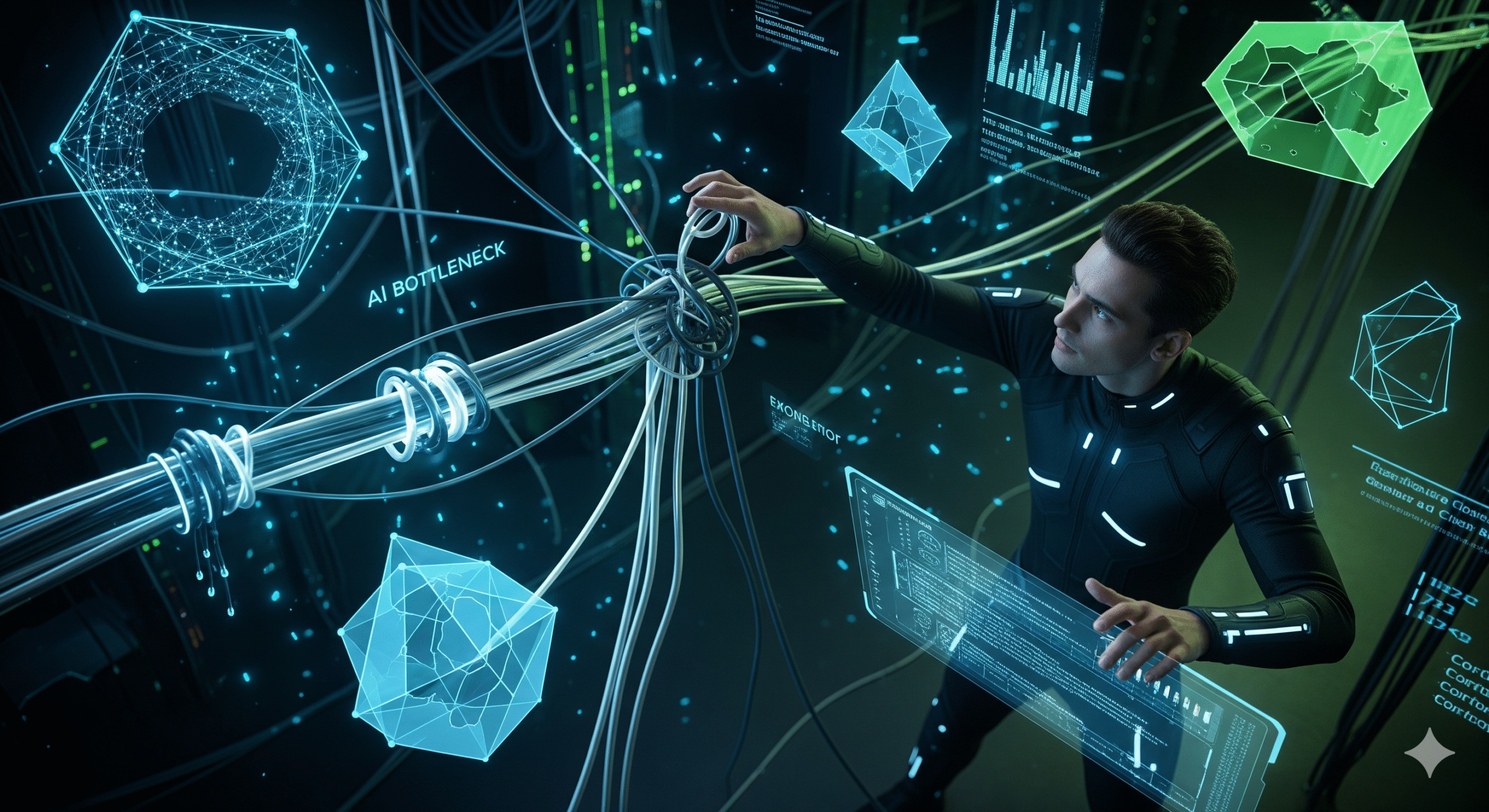AI frontrunners bottlenecks are emerging as a significant concern. Leaders in artificial intelligence are reportedly encountering increasing obstacles. These “bottlenecks” threaten to impede their rapid advancements. They also pose a risk to their market dominance.
Key Takeaways
- The AI industry’s leading companies face major operational and developmental challenges.
- These issues are broadly termed “growing bottlenecks” impacting progress significantly.
- The topic is drawing considerable interest within the investment community. Financial news publications highlight this concern.
- Specific details regarding the nature of these bottlenecks remain largely unelaborated in initial reports.
Overview of Emerging Challenges for AI Frontrunners
Reports from Investment Executive confirm a new wave of challenges. These manifest as growing AI frontrunners bottlenecks. Companies at the forefront of AI innovation are contending with these issues. The impediments are currently undefined, but suggest a potential slowdown. This could increase difficulty for the industry’s most advanced players.
The news was published on August 31, 2025. It underscores a developing narrative. This narrative exists within both tech and investment communities. It questions the sustainability and ease of progress for AI pioneers. Initial information from a “Soundbites program” highlights its independence. The article was written without sponsor input, ensuring editorial freedom.
Unpacking the Nature of AI Frontrunners Bottlenecks
While the initial reports are vague, experts speculate on potential forms of AI frontrunners bottlenecks. One major area is hardware supply. The demand for advanced GPUs and specialized AI chips consistently outstrips supply. This creates significant delays in development and deployment.
Another crucial bottleneck involves talent acquisition. The global pool of top-tier AI researchers and engineers is finite. Leading companies fiercely compete for these rare specialists. This drives up costs and slows down critical innovation cycles.
Computational resources also present a growing challenge. Training ever-larger AI models demands immense computing power. This requires vast data centers and significant energy consumption. Scaling these operations becomes increasingly complex and expensive.
Regulatory hurdles and ethical considerations are becoming more prominent. Governments worldwide are beginning to scrutinize AI development. Compliance with new regulations can slow progress. Addressing ethical concerns like bias and privacy also requires substantial resources.
Finally, data scarcity and quality remain fundamental. High-quality, diverse datasets are essential for training robust AI. Accessing and curating such data at scale is a monumental task. Poor data can lead to flawed AI systems, undermining progress.
Implications for Investment in AI
The emergence of these AI frontrunners bottlenecks is highly relevant. Investors and financial analysts are closely monitoring the AI sector. “AI frontrunners” typically includes companies with significant market capitalization. They possess advanced research capabilities. These firms hold leading positions in developing AI technologies.
Any challenges faced by these companies have broader implications. They could impact overall market sentiment towards AI investments. Uncertainty about these bottlenecks may cause investor caution. This might lead to re-evaluations of growth projections.
The specific nature of these bottlenecks is not yet fully detailed. Whether they pertain to hardware, talent, regulations, or data, their impact is material. Their mention by an investment-focused publication suggests serious business implications. Future reports are expected to shed more light on these crucial factors. This will redefine strategies for both AI developers and their financial backers.
The Investment Executive article and transcript share the title: “Growing bottlenecks pose challenge to AI frontrunners.” This indicates a focused discussion on the issue. Further analysis from the publication is anticipated. It should delve into the specifics of these challenges. This will provide essential insights for those looking to invest in AI. It will also help understand the rapidly evolving landscape of artificial intelligence.
Initial reports also point to related news. This includes discussions around “Investing in AI?”. This suggests a broader discourse on the opportunities and risks. Understanding these emerging bottlenecks is critical for navigating the sector effectively.
Limitations of Current Information on AI Frontrunners Bottlenecks
The provided source snippets serve primarily as an introduction. They pave the way for a larger discussion. They highlight the existence of a significant issue. This issue involves “growing bottlenecks” affecting “AI frontrunners.” However, they do not furnish comprehensive details. Specific examples or expert analyses are missing. These would typically form the core of a full news article.
Consequently, the central theme is clear. But the ability to elaborate on the nature, causes, or potential solutions is constrained. This is due to the brevity of the source material. A complete understanding will require access to the full articles. The transcripts referenced by these snippets are also essential.
Frequently Asked Questions
What are AI frontrunners bottlenecks?
AI frontrunners bottlenecks refer to significant operational and developmental obstacles. These challenges are increasingly faced by leading companies in the artificial intelligence sector. They threaten to slow down progress and impact market dominance.
How do these bottlenecks affect AI investment?
These bottlenecks introduce uncertainty for investors. They can lead to re-evaluations of growth projections for major AI companies. This might cause broader market sentiment towards AI investments to become more cautious.
What are some potential types of AI frontrunners bottlenecks?
Potential types of AI frontrunners bottlenecks include limited hardware supply (like advanced GPUs), scarcity of top AI talent, the massive demand for computational resources, increasing regulatory hurdles, and challenges in acquiring high-quality data.

